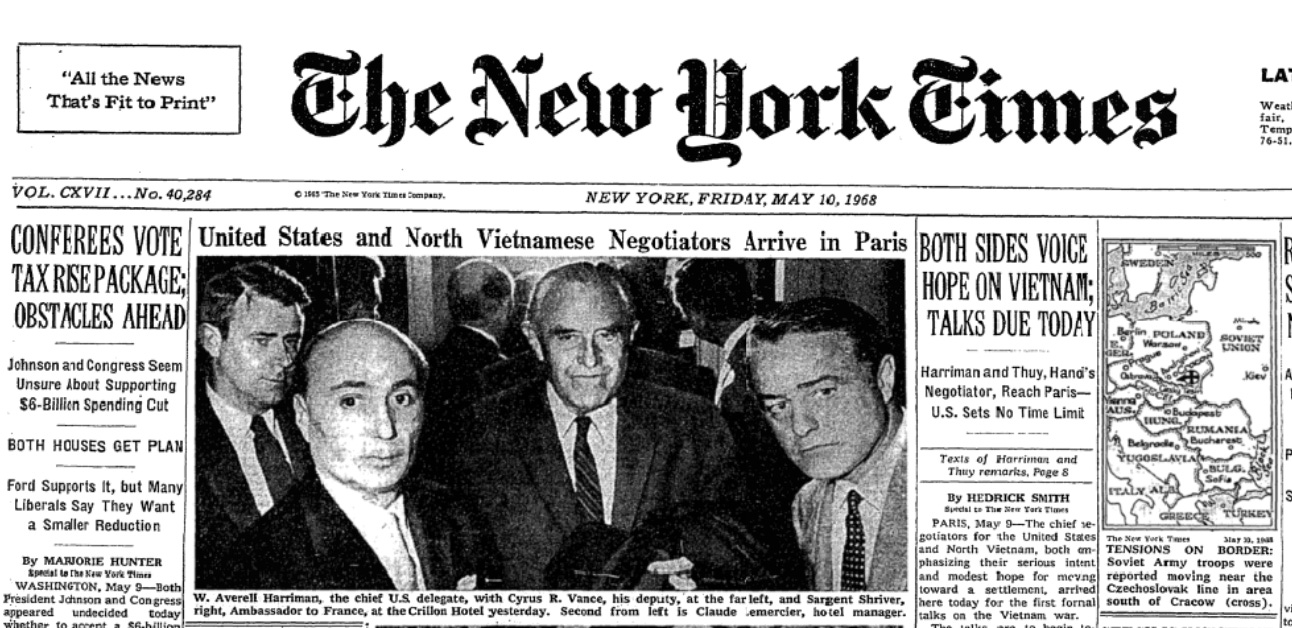Welcome back to the This Day In Esoteric Political History newsletter. Each week, a member of our team (or a friend of the show) gathers together bits of America’s past and attempts to find a throughline that might add a little understanding to our current moment.
Today, you’re in the steady hands of This Day host Nicole Hemmer!
A quick look at the next week in American history.
April 4
1865: A day after Union forces capture Richmond, U.S. President Abraham Lincoln visits the Confederate capital
1887: Susanna Madora Salter is elected as the first female mayor in the United States (Argonia, Kansas)
1967: Martin Luther King Jr. delivers his "Beyond Vietnam: A Time to Break Silence" speech, his first major public statement against the Vietnam War
1970 : Richard Nixon’s great White House uniform experiment is coming to an end
April 5
1940: Wendell Willkie, the Republican nominee for president, says the Government is to blame for the Depression
1968: Moscow is considered as a site for potential meetings between North Vietnam and American representatives. Peace negotiations would ultimately begin in Paris on May 10.
April 6
1712: The New York Slave Revolt of 1712 begins, leading to the enactment of harsher slave codes
1917: President Woodrow Wilson declares war on Germany
1926: The Tank Farm Fire in San Luis Obispo results in explosions and fires in the world's busiest oil port at the time
April 7
2017: The U.S. military launches 59 Tomahawk cruise missiles at an air base in Syria
April 8
1826: Speaker of the House Henry Clay and Senator John Randolph duel in North Arlington, Virginia
1994 : The Florida legislature passed a bill that would offer some reparations and support for descendents of the Rosewood Massacre, when a Black town was burned down in 1923
April 9
1865: Confederate General Robert E. Lee surrenders, effectively ending the American Civil War
1960: Presidential candidate Lyndon B. Johnson helps pass a civil rights bill that would guarantee new voting rights in the South.
April 10
1866: The American Society for the Prevention of Cruelty to Animals (ASPCA) is founded in New York City
1964 : Activist Gloria Richardson is forging deep ties with other civil rights leaders, particularly Malcolm X
1998: The Good Friday Agreement is signed
In which we take the above collection of events and find themes, throughlines, rabbit holes and more.
How do wars end?
Is it by government decree? Formal agreement? Ritualized surrender? And when the fighting ends, is the war really over?
The crush of war-related OTDs (we’re totally making this a thing) in early April suggests there is no straightforward answer. This week marked the rapid conclusion of the U.S. Civil War in 1865: U.S. forces captured Richmond, President Abraham Lincoln made his way to the city, the Confederacy surrendered. A tidy end to a four-year war.
Listeners to This Day know, of course, that the war didn’t end there. The white flag that went up in 1865 didn’t stay up; thousands more casualties would be added to the rolls in the century-long fight for Black freedom that followed. A century after the war started, Senator Lyndon B. Johnson voted for a law to secure some of the civil rights guaranteed in the 14th and 15th Amendments; a few years later, activists including Gloria Richardson were still fighting for a law with real teeth. Activists today are still fighting for that same law.
This week also marks the period in 1968 when US and North Vietnamese representatives began pre-negotiations ahead of peace talks, as Lyndon Johnson tried to make good on the government's promise that the war was coming to an end. Vietnam was one of those wars that the U.S. government loved to say was basically over, any day now, victory’s around the corner. At some point, wishful thinking tipped over into pure deception. U.S. involvement in the war would carry on for another five years after those early conversations. Saigon fell two years later. U.S. embassy personnel scrambling onto helicopters became the enduring image of the war’s end, even if U.S. leaders had been declaring the war over for years.

Also, this week: the Good Friday Agreement of 1998. The agreement marked the end of the Troubles, the brutal 30-year conflict that killed thousands and injured tens of thousands more. The settlement of the conflict was not imposed by leaders but ratified by a democratic vote, and it has largely held, even in the face of rising European nationalism.
The Good Friday Agreement took place at a time when “peace” had re-emerged as central obsession in U.S. foreign policy, shaped by a belief that, in the aftermath of the Cold War, there was an opportunity to tidy up national boundaries, negotiate new agreements, and bring to an end the conflicts that had shaped much of the 20th century. With old divisions healed, democracy and capitalism would create an environment to prevent new conflicts from emerging. (This was the moment Thomas Friedman came up with his McDonald’s peace theory — no two countries with a McDonald’s would ever go to war – and we should definitely do an episode on that.)
We know how that turned out. The question of how wars end has not been relegated to an abstract musing in the 21st century but remains a very real concern of our time. Heavy stuff for the bright, breezy days of early April, but those are the dots we’re connecting this week.
— Nicole Hemmer
Apple | Spotify | PocketCasts | YouTube | Twitter/X | Threads | Instagram





